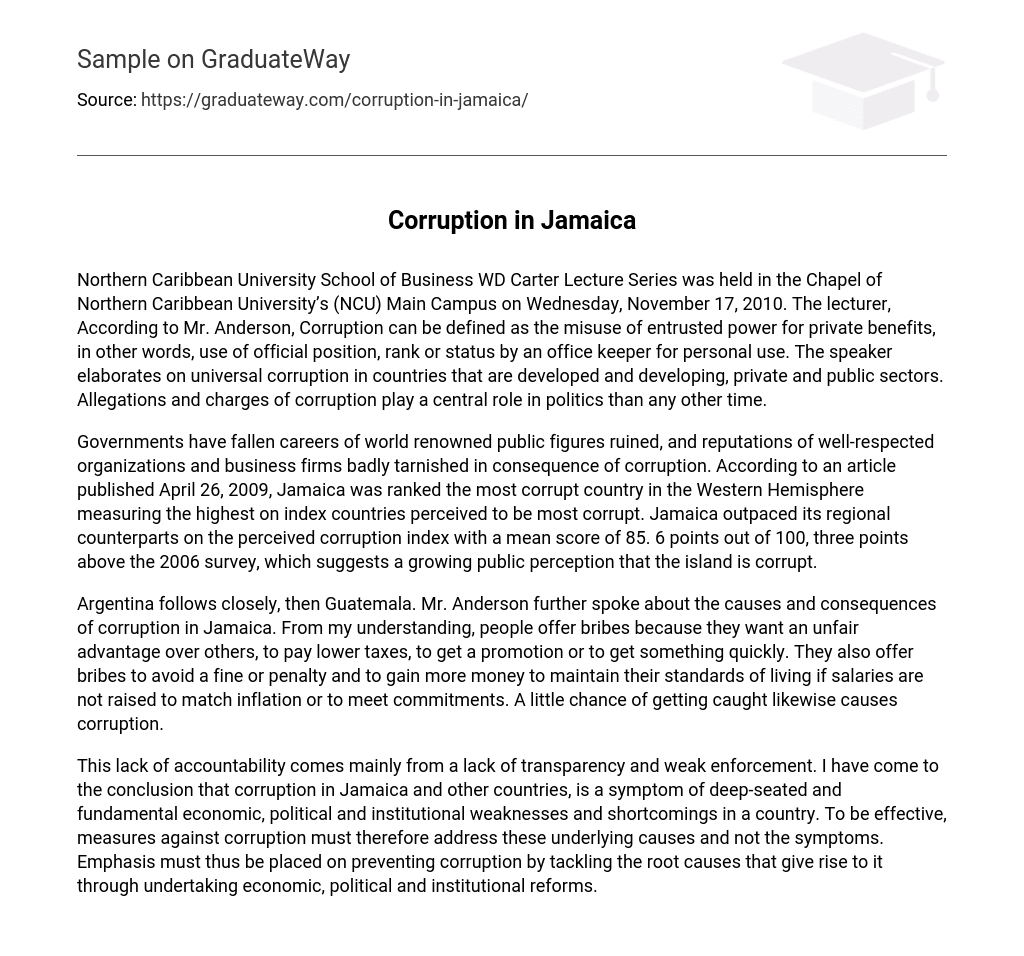Northern Caribbean University School of Business WD Carter Lecture Series was held in the Chapel of Northern Caribbean University’s (NCU) Main Campus on Wednesday, November 17, 2010. The lecturer, According to Mr. Anderson, Corruption can be defined as the misuse of entrusted power for private benefits, in other words, use of official position, rank or status by an office keeper for personal use. The speaker elaborates on universal corruption in countries that are developed and developing, private and public sectors. Allegations and charges of corruption play a central role in politics than any other time.
Governments have fallen careers of world renowned public figures ruined, and reputations of well-respected organizations and business firms badly tarnished in consequence of corruption. According to an article published April 26, 2009, Jamaica was ranked the most corrupt country in the Western Hemisphere measuring the highest on index countries perceived to be most corrupt. Jamaica outpaced its regional counterparts on the perceived corruption index with a mean score of 85. 6 points out of 100, three points above the 2006 survey, which suggests a growing public perception that the island is corrupt.
Argentina follows closely, then Guatemala. Mr. Anderson further spoke about the causes and consequences of corruption in Jamaica. From my understanding, people offer bribes because they want an unfair advantage over others, to pay lower taxes, to get a promotion or to get something quickly. They also offer bribes to avoid a fine or penalty and to gain more money to maintain their standards of living if salaries are not raised to match inflation or to meet commitments. A little chance of getting caught likewise causes corruption.
This lack of accountability comes mainly from a lack of transparency and weak enforcement. I have come to the conclusion that corruption in Jamaica and other countries, is a symptom of deep-seated and fundamental economic, political and institutional weaknesses and shortcomings in a country. To be effective, measures against corruption must therefore address these underlying causes and not the symptoms. Emphasis must thus be placed on preventing corruption by tackling the root causes that give rise to it through undertaking economic, political and institutional reforms.





